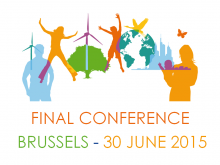This CECILIA2050 report examines the implications of imposing an 80% reduction of EU CO2 emissions on the Union’s energy system and attempts to project the most cost-effective transformation pathway to achieve this goal using the recently developed European TIMES Model (ETM-UCL).
The key conclusions of the report are that the use of biomass CCS is essential in order to produce a technically feasible mitigation pathway. In addition, 70% of generation sourced from a mixture of renewables and nuclear by 2050 is required. CCS needs to be attached to the majority of the remaining fossil fuels. In the transport, building and in the industrial sectors CO2 reductions need to be achieved respectively by replacing gasoline with diesel, increasing end-use product efficiency as well as applying CCS. The average EU-wide carbon prices reach $300/tCO2 in 2050. However, many technical uncertainties unavoidably pervade attempts to project future energy system developments, such as the future availability of biomass CCS.
The full report can be downloaded here.


